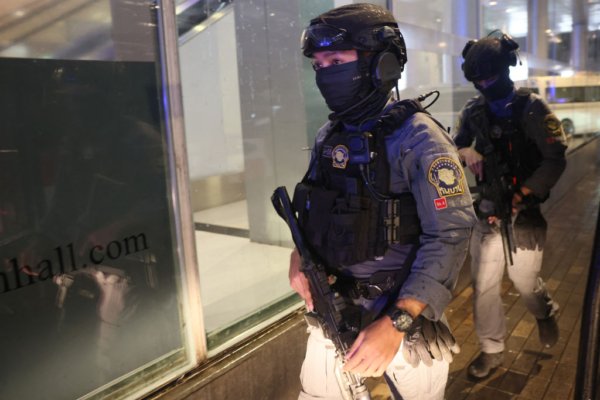Thai police recently cracked down on a scam call center run by Chinese nationals in Bangkok. The operation was based in an apartment building in the city where six Chinese citizens were arrested, and a large quantity of cell phones, SIM cards, and other items were seized.
According to Khaosod, the suspects had turned their living space into a high-tech scam center equipped with sophisticated networks that could make up to 600,000 fraudulent calls per hour.
During a search on December 20th of six apartment units on the 16th, 17th, and 23rd floors, police found a significant amount of equipment, including 286 SIM card boxes, over 208,000 SIM cards, 636 cell phones, 62 computer monitors, 84 CPUs, and 4 laptops.
The report stated that these suspects had entered Thailand in the past four months on student and tourist visas. Investigations revealed that the actual scam calls were made from overseas by remotely connecting to equipment in Bangkok.
One suspect confessed that under the directives of a superior referred to as “Zhun Ge,” he was tasked with maintaining the SIM card business for a monthly salary of 8000 Chinese Yuan.
Authorities have confirmed that three other suspects are currently on the run. Arrest warrants have been issued, and they have been placed on watchlists to prevent their escape through border checkpoints.
According to Thai PBS, one of the suspects claimed that while in China, he saw an advertisement by a Thai programmer offering a monthly salary of 8,000 Chinese Yuan, approximately 40,000 Thai Baht, leading him to apply for the job.
He mentioned that his main duty was to continuously change SIM cards, which were used to create accounts on various social media platforms in Thailand and China. Each SIM card was changed after opening 20 accounts.
Director of the Technology Crime Suppression Division, Pol Gen Tatchai Pitanilabutr, stated that suspicions arose among immigration officials after several Chinese tourists sought accommodation in the apartment building. They sought a search warrant from the court.
Tatchai claimed that the group used an artificial intelligence program to rapidly register and open accounts on social media platforms, making it difficult for authorities to block these accounts.
Police mentioned that several suspects had been active in Laos and Cambodia before coming to Thailand.
These suspects face multiple charges, including unauthorized possession and operation of telecommunications equipment, inputting false information into computer systems, concealing proceeds of crime, and working in Thailand without appropriate permits. Immigration authorities are preparing to deport the suspects once legal proceedings are completed.

